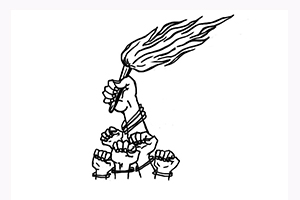Cause Area
Primary Sectors
Secondary Sectors
Geographies Served
Programs
-
Education
District
Raichur
States
Karnataka
Scheduled Castes and Scheduled Tribes continue to have the lowest rates of literacy in the nation; this is also the case in the Raichur district. Since Dalits' access to high-quality education was restricted to people in general and they were either denied primary school altogether or were unable to access possibilities for education because of socioeconomic and cultural factors, they faced hardship. In vulnerable populations, one observes the occurrence of child marriages, child labour, bonded labour, etc. JMS has prioritised giving kids access to education by pushing them to attend school, organising inspirational workshops and tutoring sessions, and collaborating with the Ministry of Labor's National Child Labour Project (NCLP) to educate, mainstream, and rehabilitate child labourers. One such project is the Chilipili Child Labourers' Special School.
-
Micro credit and self-help
StateStates
Karnataka
The community's worst enemy has been excessive debt and restricted access to financial resources. On the one hand, their lack of resources pushes them to use credit, while on the other, their reputation as unworthy of credit prevents them from accessing official financial institutions like banks. Due to their heightened sense of vulnerability, Dalit groups and women have historically been forced to give up their possessions (cows, utensils, lands, etc.) or incur debt from unofficial moneylenders. Through weekly savings, the women in 45 villages have banded together to form local financial self-help groups. They have been able to regain confidence in themselves because to the loans and livelihood programmes offered by the local banks and the SC-ST Development Corporation (Karnataka government).
Leadership Team
-
E.Premdas Pinto
Executive Secretary & Mentor
Demographics & Structure
-
Organisation Strength
None
Registration Details
-
PAN Card
AAATN6211E
-
Registration Number
Book IV/No.10/2004-05
-
CSR Form 1
Not Available
-
80G
AAATN6211EF20213
-
12A
AAATN6211EE20214
-
FCRA
Not Available
About
-
Headquarters
Raichur, Karnataka
-
Since
2003
Impact
JMS has reduced violence against Dalit women, liberated 1000 Dalit child laborers, revived 10 Primary Health Centers and 25 Anganwadis, and distributed dry ration kits with masks and soaps to 3300 families of agricultural daily wage laborers and 120 families of construction workers during the COVID-19 response.
Vision and Mission
JMS aims to ensure equality, dignity, and justice for Dalit women by building their leadership through training and awareness, addressing Dalit women's rights issues, and campaigning for their political, economic, social, and cultural rights.
Political & Religious Declarations
-
Political Affiliation
-
Religious Affiliation
Location
-
Offices in Cities
Other Details
-
Type
Non-profit
-
Sub Type
Trust
Technology Adoption
-
SOC 2 Compliant
No
-
Financial Management
-
Beneficiary Management



